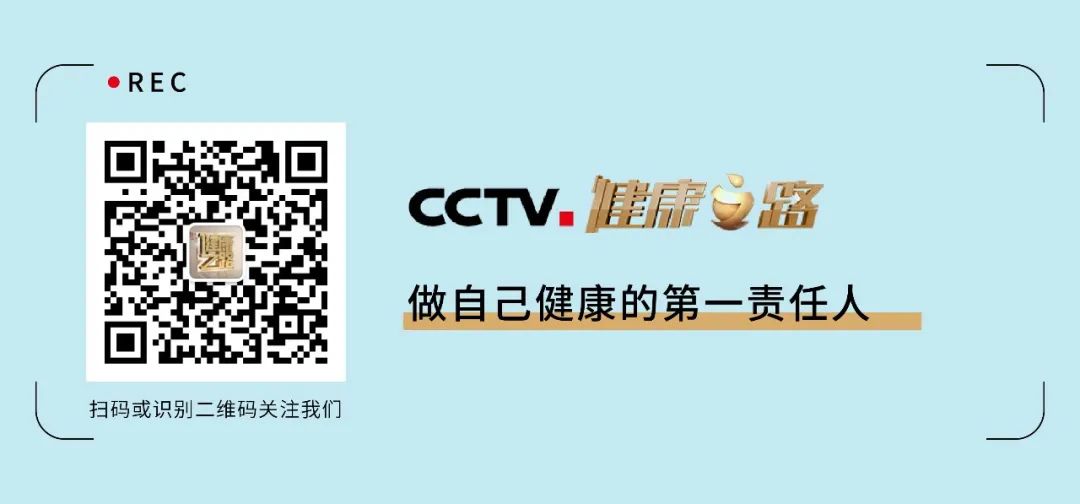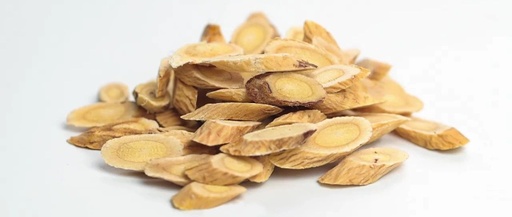
Huang Qi (Astragalus), Di Huang (Rehmannia), Huang Jing (Polygonatum)
Three sweet tonic herbs
All are tonics
What are their different effects?
Experts guide you on how to use sweet flavors for health

Huang Qi (Astragalus)
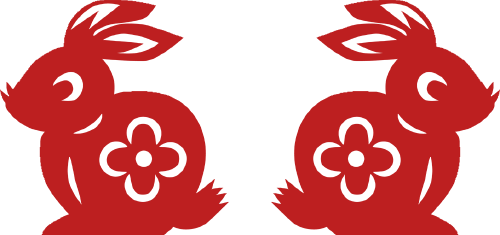
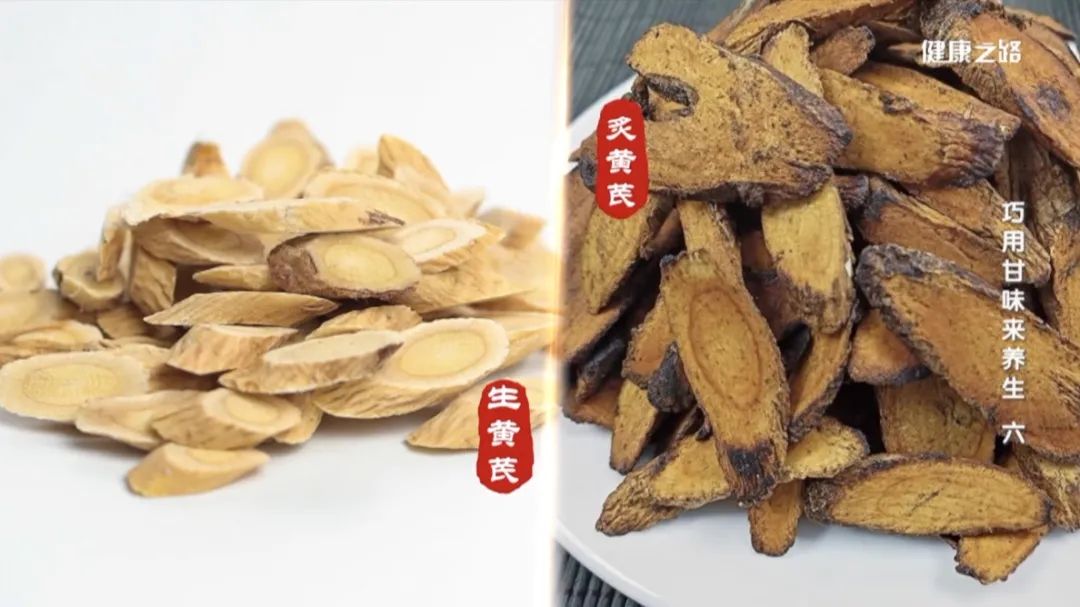
Sheng Huang Qi (Raw Astragalus):
The main effect is to stabilize the exterior and stop sweating, suitable for spontaneous sweating due to deficiency of Yang Qi in the body. Note that Huang Qi should not be used for night sweats caused by Yin deficiency.
Zhi Huang Qi (Honey-fried Astragalus):
The main effect is to tonify the middle and benefit Qi, suitable for patients with Lung Qi deficiency and Spleen Qi deficiency. Symptoms of Lung Qi deficiency include chronic cough, weakness, shortness of breath, chest tightness, and fatigue; symptoms of Spleen Qi deficiency include poor appetite, abdominal distension, pale complexion, and lethargy.
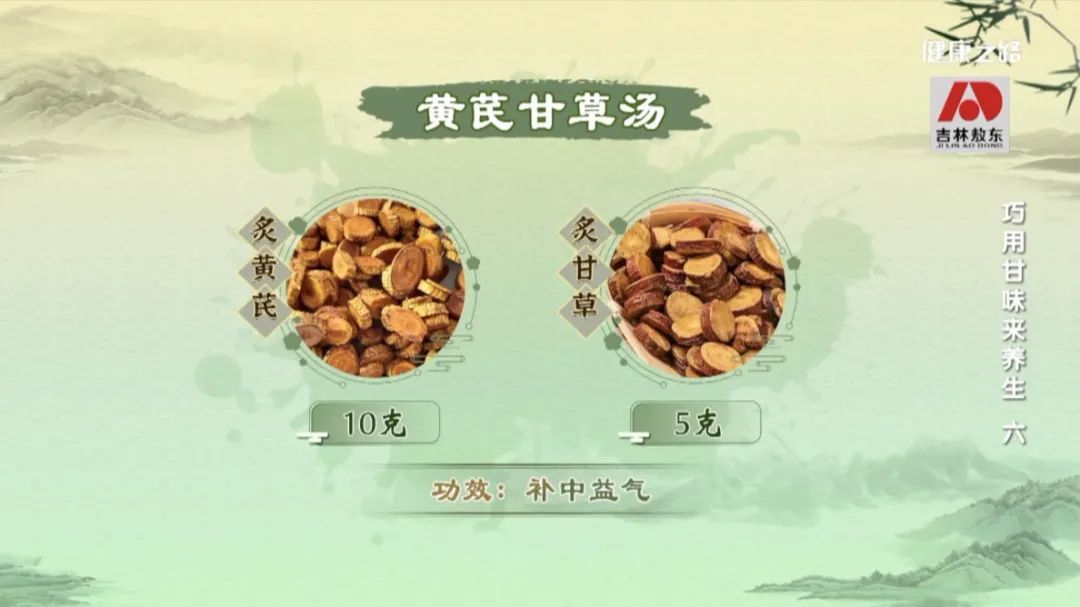
Huang Qi Gan Cao Tang (Astragalus and Licorice Decoction):
Combining Zhi Huang Qi and Zhi Gan Cao (Honey-fried Licorice) to make a tea drink enhances the effect of tonifying the middle and benefiting Qi. Patients with Qi deficiency can drink it for a period, but healthy individuals may experience excess heat if consumed long-term.
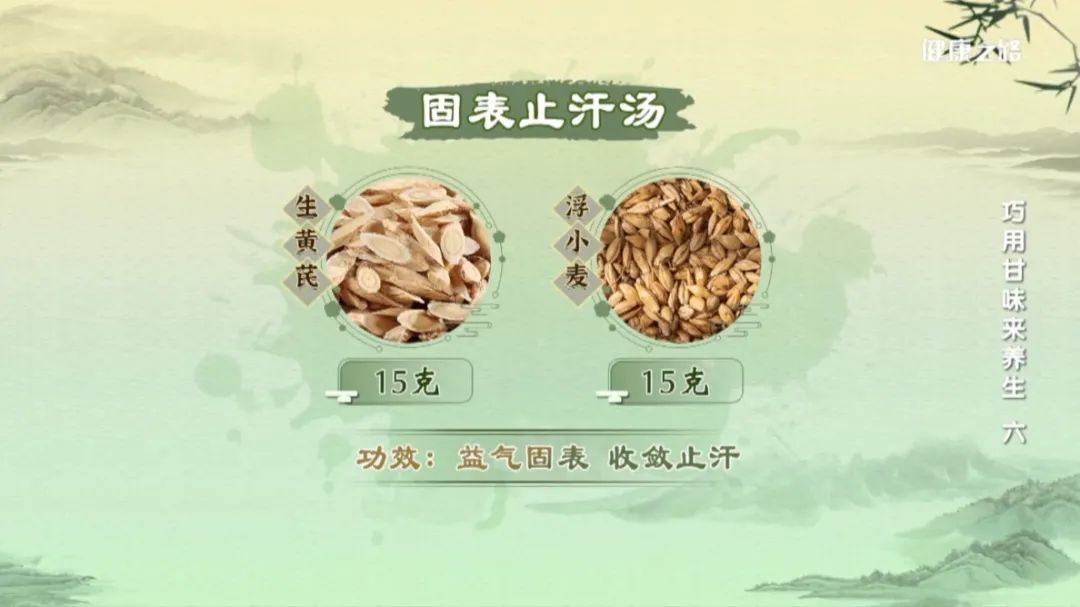
Gu Biao Zhi Han Tang (Stabilizing the Exterior and Stopping Sweating Decoction):
Fu Xiao Mai (Floating Wheat) has the effect of benefiting Qi and restraining sweating. Cooking Sheng Huang Qi with Fu Xiao Mai can achieve a good effect of stabilizing the exterior and stopping sweating.
Follow the chef to learn how to make creative dishes ↓
Huang Jing (Polygonatum)

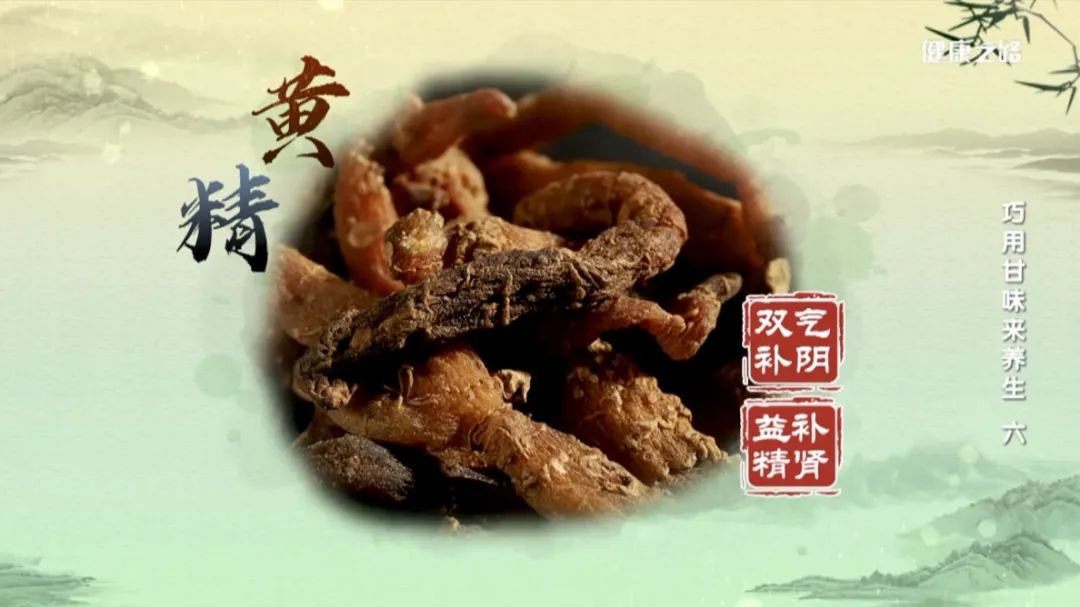
Qi Yin Shuang Bu (Tonifying Qi and Yin):
Huang Jing has many effects, can tonify the Spleen, Lung, Stomach, Heart, and Kidney, suitable for patients with both Qi and Yin deficiency.
Bu Shen Yi Jing (Tonifying Kidney and Nourishing Essence): Suitable for patients with Kidney essence deficiency, symptoms include dizziness, weakness in the lower back and knees, forgetfulness, and insomnia.
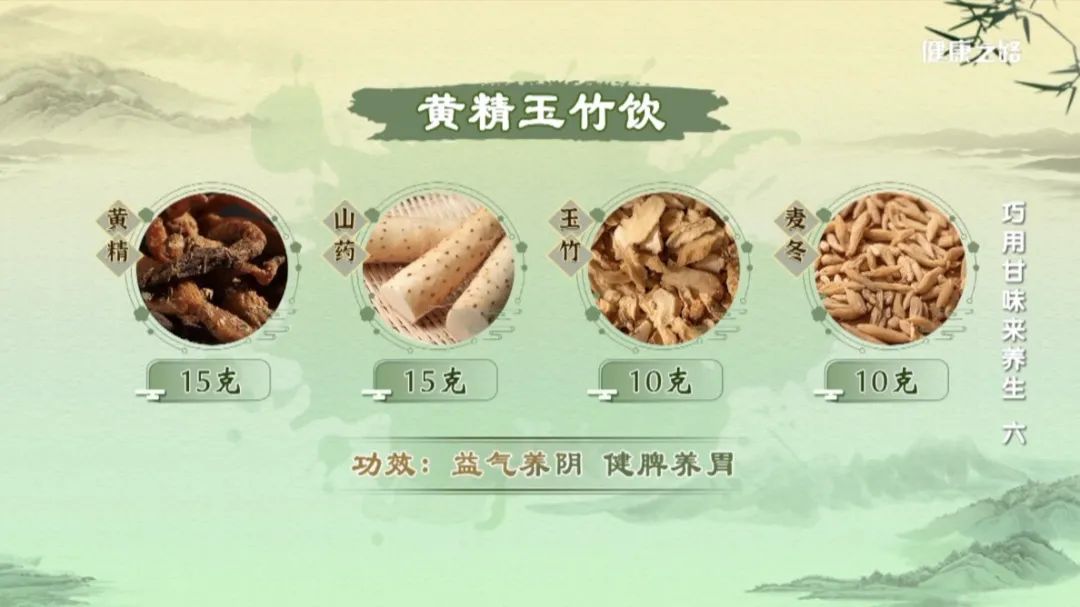
Huang Jing Yu Zhu Yin (Polygonatum and Solomon’s Seal Decoction):
Shan Yao (Chinese Yam) benefits Qi and nourishes Yin, strengthens the Spleen and tonifies the Kidney. Yu Zhu (Solomon’s Seal) and Mai Dong (Ophiopogon) can nourish Yin and moisten dryness. The combination of these four herbs can benefit Qi, nourish Yin, strengthen the Spleen, and support the Stomach.
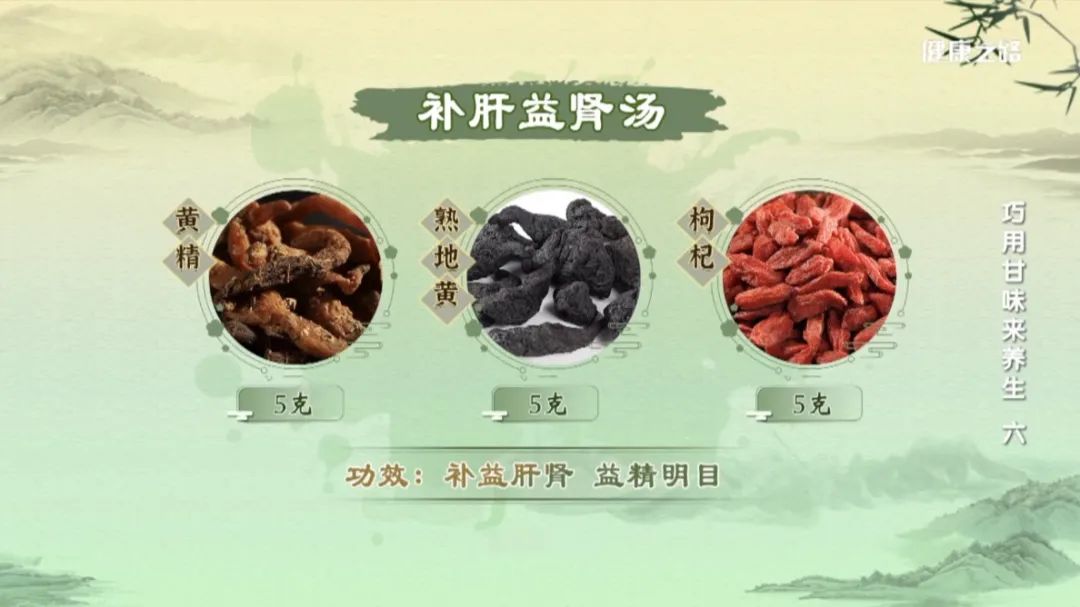
Bu Gan Yi Shen Tang (Liver and Kidney Nourishing Decoction):
This decoction is very effective for patients with Kidney essence deficiency and premature aging.
Di Huang (Rehmannia)

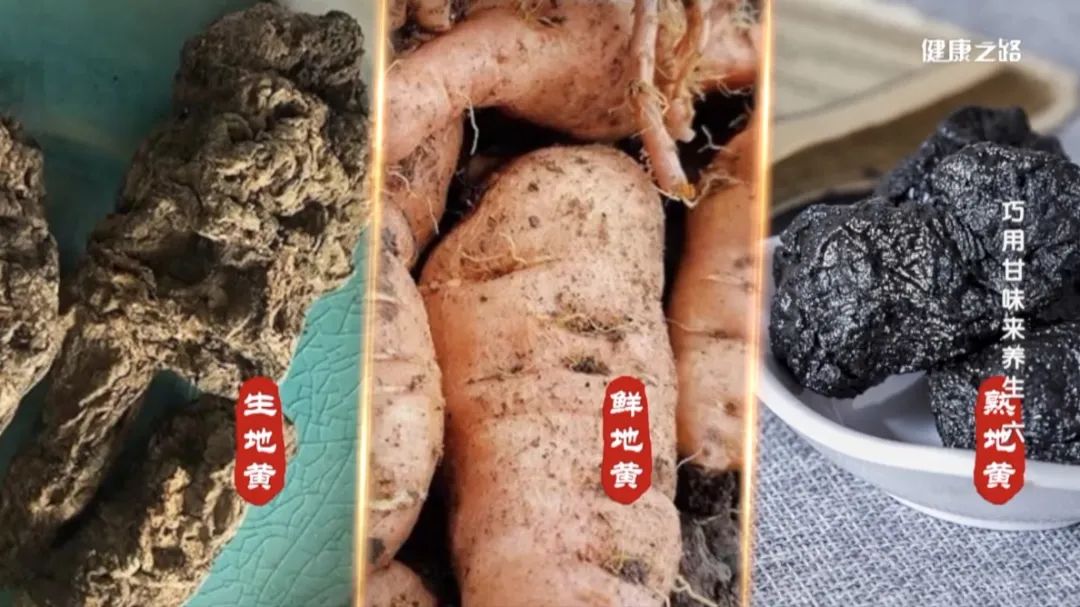
Sheng Di Huang (Raw Rehmannia):
Yang Yin Sheng Jin (Nourishing Yin and Generating Fluids):
Suitable for symptoms such as dry mouth and throat, thirst with a preference for drinking, and dry stools.
Shu Di Huang (Prepared Rehmannia):
Bu Yin Yang Xue (Nourishing Yin and Blood):
Suitable for patients with blood deficiency symptoms such as pale complexion, dizziness, palpitations, and insomnia. It can also be used for women with menstrual irregularities and dysmenorrhea.
Tian Jing Yi Sui (Nourishing Essence and Marrow):
Suitable for patients with Kidney essence deficiency symptoms such as premature graying of hair, hair loss, forgetfulness, weakness in the lower back and knees, and night sweats.
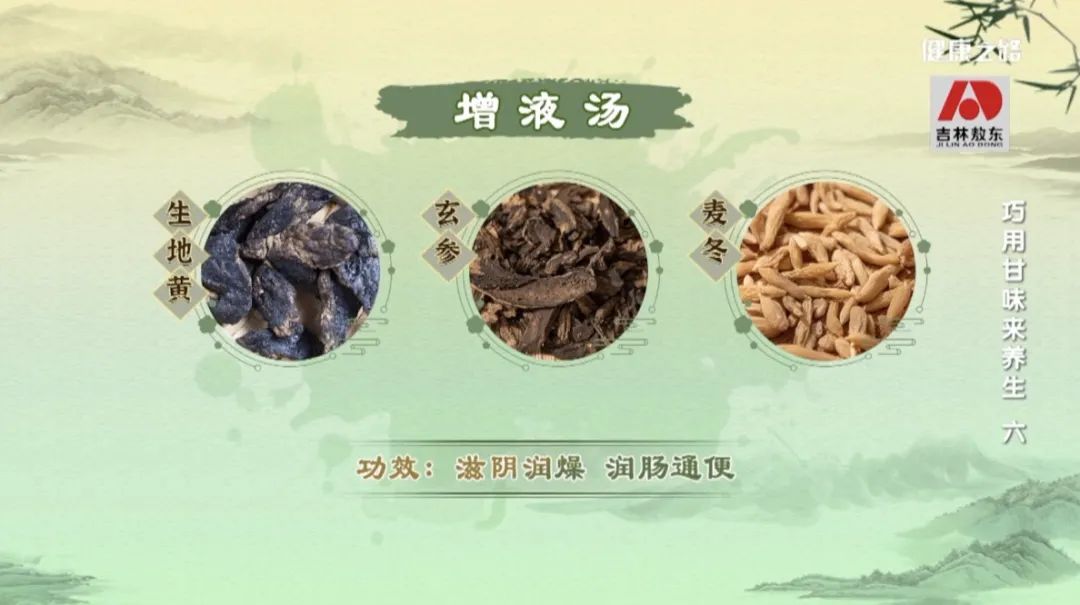
Zeng Ye Tang (Increasing Fluid Decoction):
Sheng Di Huang, Xuan Shen (Scrophularia), and Mai Dong have excellent effects in nourishing Yin, moistening dryness, and generating fluids. Cooking them together can help with bowel movements.
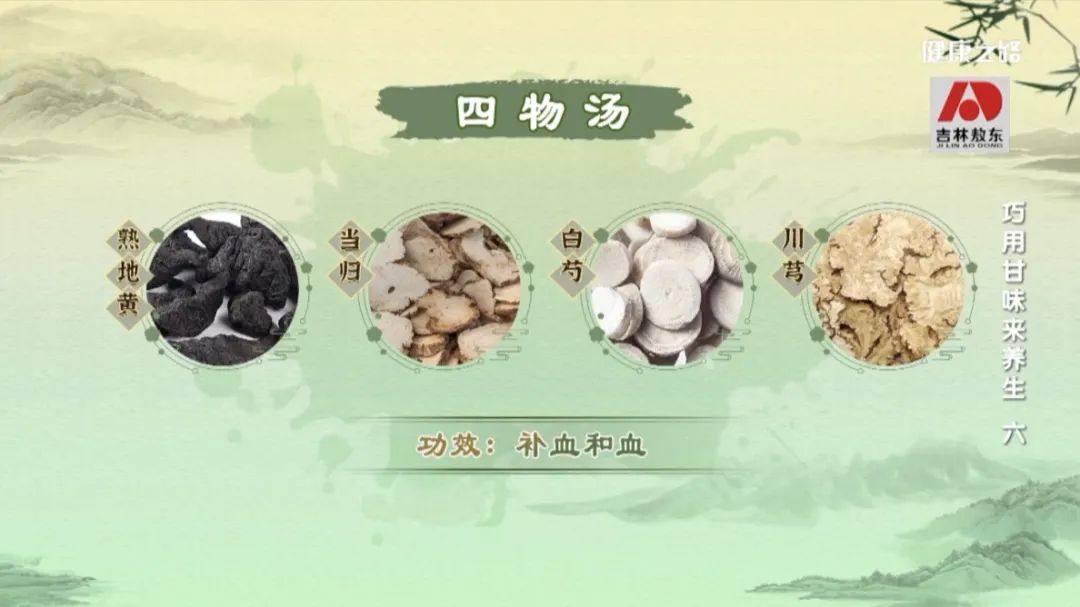
Si Wu Tang (Four Substance Decoction):
Shu Di Huang nourishes blood and nourishes Yin; Dang Gui (Angelica) nourishes blood and regulates menstruation; Bai Shao (White Peony) nourishes blood and softens the liver; Chuan Xiong (Ligusticum) promotes Qi and invigorates blood. The combination of these four herbs has excellent blood-nourishing and regulating effects.
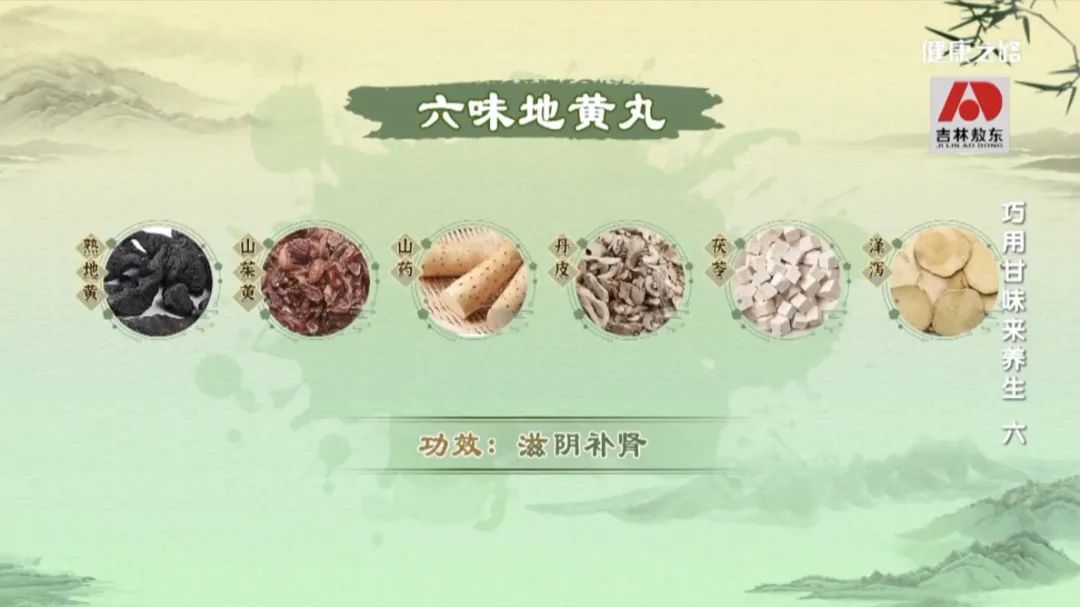
Liu Wei Di Huang Wan (Six-Ingredient Rehmannia Pill):
Shu Di Huang, Shan Zhu Yu (Cornus), and Shan Yao mainly nourish the Liver and Kidney, filling essence and marrow; Dan Pi (Moutan) and Fu Ling (Poria) mainly drain Yin fire and dampness. Liu Wei Di Huang Wan can be taken long-term to nourish Yin and tonify the Kidney.
Follow the chef to learn how to make creative dishes ↓
Our video channel is here! Click the video below to like, share, and comment, and learn a bit of health knowledge every day for a healthier life together.
Health Road Program Broadcast Time
“Clever Use of Sweet Flavors for Health” (Part 6)
△ First Broadcast: January 26, 18:05
△ Rebroadcast: Next Day 08:28
● More Exciting Content
1Bai Bian Dou (White Lentil), Hei Dou (Black Bean), Chi Xiao Dou (Red Bean), teaching you how to make good use of sweet beans!|Health Road2Shan Yao (Chinese Yam), Bai He (Lily Bulb), Ma Ti (Water Chestnut), teaching you how to cleverly use three sweet white tubers for health!|Health Road3Lo Han Guo (Monk Fruit), Gou Qi (Goji Berry), Gui Yuan (Longan), the health benefits of three sweet fruits!|Health Road4Pu Cai (Water Plantain), Lian Zi (Lotus Seed), Qian Shi (Fox Nut), teaching you how to cleverly use sweet tonics for health!|Health Road5Fu Ling (Poria), Tian Ma (Gastrodia), Rou Cong Rong (Cistanche), the effects of sweet herbs are not small!|Health RoadPlease contact the editor for reprints, unauthorized complaints will be filed.
Of course, everyone is welcome to share the article in their circle of friends.
Article edited by: Bing Xi, Editor: Xia Yi
